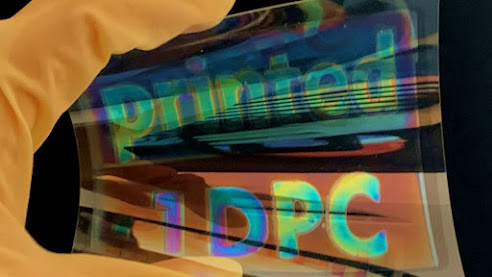 |
| A superconducting-based quantum processor, composed of several thin film materials deposited on top of a silicon substrate. Photo credit: Rigetti Computing |
Silicon is a material widely used in computing: It is used in computer chips, circuits, displays and other modern computing devices. Silicon is also used as the substrate, or the foundation of quantum computing chips.
Researchers at the Superconducting Quantum Materials and Systems Center, hosted by the U.S. Department of Energy’s Fermi National Accelerator Laboratory, demonstrated that silicon substrates could be detrimental to the performance of quantum processors. SQMS Center scientists have measured silicon’s effect on the lifespan of qubits with parts-per-billion precision. These findings have been published in Physical Review Applied.
New approaches to computing
Calculations once performed on pen and paper have since been handed to computers. Classical computers rely on bits, 1 or 0, which have limitations. Quantum computers offer a new approach to computing that relies on quantum mechanics. These novel devices could perform calculations that would take years or be practically impossible for a classical computer to perform.
Using the power of quantum mechanics, qubits—the basic unit of quantum information held within a quantum computing chip—can be both a 1 and a 0 at the same time. Processing and storing information in qubits is challenging and requires a well-controlled environment. Small environmental disturbances or flaws in the qubit’s materials can destroy the information.
Qubits require near-perfect conditions to maintain the integrity of their quantum state, and certain material properties can decrease the qubit lifespan. This phenomenon, called quantum decoherence, is a critical obstacle to overcome to operate quantum processors.
















.jpg)